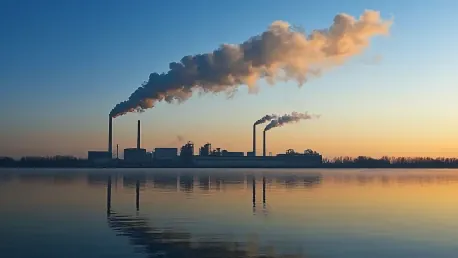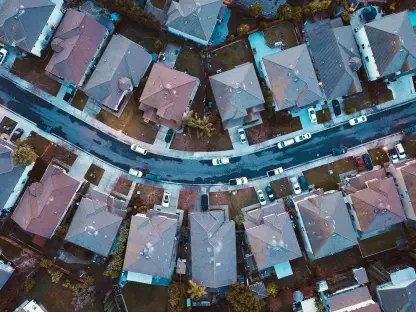Recent developments and significant strides in various aspects of sustainability and environmental governance have marked a transformative era for global policy and corporate practices. Emerging ESG (Environmental, Social, and Governance) updates reflect key accomplishments and enduring challenges faced by the European Union (EU), China, Shell, and South African farm workers. As these entities strive toward more environmentally responsible and sustainable practices, their actions provide a comprehensive understanding of the complex landscape of global sustainability efforts.
EU Emissions Trading System Successes
The EU Emissions Trading System (ETS), established in 2005, has shown remarkable progress in reducing greenhouse gas emissions in carbon-intensive sectors. The ETS employs market-based mechanisms to achieve its goals, and its success is evident from the 50% overall reduction in emissions within the covered sectors. Over the past year alone, emissions decreased by 5%, continuing a longer-term trend supported by strategic policy adjustments.
In a bid to accelerate these efforts, EU lawmakers in 2023 expanded the scope of the ETS to set more ambitious targets across various sectors such as electricity, heat generation, oil, refineries, steel, cement, and paper. The power sector, in particular, emerged as the largest contributor to the decline in emissions, recording a 12% decrease in 2024. However, certain sectors such as fertilizers and aviation experienced increases in emissions during the same period, indicating areas where targeted improvements are essential. Companies must stay informed about emerging news and legislation through ESG tools to maintain compliance and strategic alignment.
China’s Green Bond Initiative
In a significant move, China’s Ministry of Finance announced the issuance of its first sovereign green bond, marking a pivotal moment in the nation’s environmental finance initiatives. This sovereign green bond, projected to raise RMB 6 billion, is intended to support a broad array of environmental goals, such as climate change mitigation, adaptation strategies, and natural resource conservation efforts. The green bonds were introduced on the London Stock Exchange, highlighting strengthened UK-Chinese relations and China’s commitment to sustainable development.
The Ministry of Finance’s green bond framework categorizes eligible expenditures for green bond funds to include clean transportation, sustainable water and wastewater management, and other critical areas. This comprehensive approach to addressing environmental challenges reflects China’s strategic effort to integrate environmental sustainability into its economic framework. By fostering international cooperation and leveraging financial markets, China aims to make substantial progress in meeting its sustainability objectives.
Shell’s Production Adjustments
Shell, one of the major players in the global energy sector, recently revised its production outlook for liquefied natural gas (LNG) in the first quarter due to adverse weather conditions in Australia. Initially, forecasts anticipated LNG output ranging between 6.6 million to 7.2 million tons, but the projections were adjusted to a range of 6.4 million to 6.8 million tons. Despite the reduction in production, Shell expects trading results for its gas division to remain consistent with the previous quarter, demonstrating resilience in its operations.
Furthermore, Shell also reported a narrowed forecast for overall oil and gas output, reflecting external challenges such as weather and geopolitical instability affecting production metrics. These adjustments underscore the dynamic nature of the energy sector, where companies must navigate a complex array of external factors to maintain stability and operational efficiency.
Ethical Issues in South African Agriculture
South African farm workers are grappling with the severe impacts of the EU’s trade practices, particularly the export of pesticides banned within Europe but still used in third-world countries. These chemicals, including Dormex, pose significant health risks to farm workers, as highlighted by the case of Dina Ndelini, who suffered substantial health issues due to exposure. Dormex, banned in the EU since 2009, raises urgent ethical questions about double standards in global trade practices.
The continued export of hazardous chemicals to vulnerable populations in developing nations necessitates a reassessment of trade policies to ensure greater transparency and accountability. European consumers, often unaware of the adverse effects experienced by farm workers in South Africa, must be educated about these unethical practices. Initiatives such as the People’s Tribunal on Agrotoxins, held in Stellenbosch, amplify these concerns and call for immediate action to protect the health and rights of workers in agriculture.
Multifaceted Efforts Toward Sustainability
Recent advancements and major progress in sustainability and environmental governance signal a transformative period for global policy and corporate practices. The latest updates in ESG (Environmental, Social, and Governance) highlight significant achievements and ongoing challenges faced by the European Union (EU), China, Shell, and South African farm workers. These entities are making concerted efforts toward more environmentally responsible and sustainable practices, offering a comprehensive view of the intricate global sustainability landscape.
For example, the European Union has set ambitious targets to reduce carbon emissions, while China is investing heavily in renewable energy sources to diminish its carbon footprint and tackle pollution issues. Meanwhile, Shell’s attempts to pivot towards greener energy sources underline the ongoing evolution of major corporations. In South Africa, farm workers are actively engaged in enhancing sustainable agricultural practices that promote environmental stewardship. Together, these efforts emphasize the collaborative nature of addressing sustainability challenges at a global scale.









